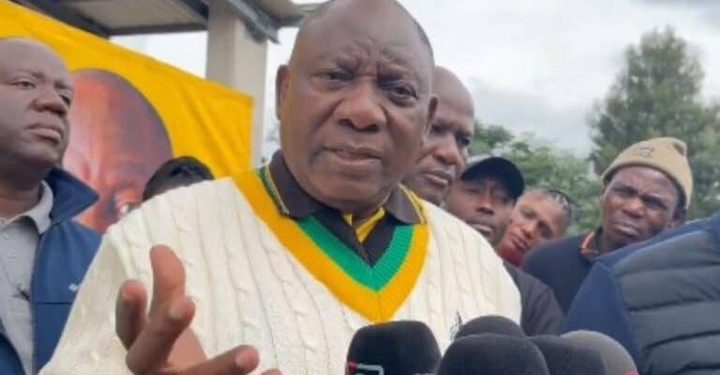A new survey has revealed alarming projections for South Africa’s ruling ANC, suggesting the party’s electoral support could collapse to just over 20% if President Cyril Ramaphosa is removed from office. The research, conducted by a prominent political analysis firm, indicates Ramaphosa remains the ANC’s key electoral asset despite growing internal and external criticism.
The study found that without Ramaphosa at the helm, ANC voter support could crash to between 20-25% – a seismic drop that would fundamentally reshape South Africa’s political landscape. This comes as the party already faces its most serious electoral challenge since the end of apartheid, having recently lost its parliamentary majority.
The findings highlight Ramaphosa’s paradoxical position: while facing criticism over economic management, corruption scandals and party infighting, he maintains significant public support as a stabilizing figure. Many voters continue to see him as preferable to the Zuma-era leadership, particularly due to his anti-corruption stance.
“This data shows Ramaphosa remains the glue holding together the ANC’s electoral coalition,” said political analyst Thando Mkhize. “Remove him, and you risk the party fracturing along its existing ideological and factional lines.”
The survey comes amid growing tensions within the ANC, with pro-Zuma factions increasingly vocal in their opposition to Ramaphosa’s leadership. Opposition parties have meanwhile capitalized on public frustration over service delivery failures and governance challenges.
Political observers warn that such a dramatic drop in support would likely force the ANC into unstable coalition arrangements or potentially see it replaced as South Africa’s dominant party. The scenario raises questions about whether party leaders would risk removing Ramaphosa knowing the potential electoral consequences.
“The ANC now faces an impossible dilemma,” Mkhize added. “Keep Ramaphosa and manage internal discontent, or remove him and potentially trigger an electoral collapse. Their choice will shape South African politics for years to come.”
With the next general election approaching, the survey underscores how Ramaphosa’s personal political fortunes remain inextricably tied to his party’s survival – a reality that may give him crucial leverage in ongoing internal power struggles.






















